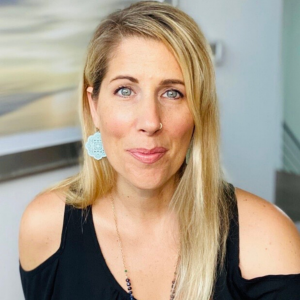Podcast: Play in new window | Download

Grief support and empathy education is so important in the context of value-based health care as it connects us to our own humanity. It speaks to why we entered into the altruistic practice of providing care, yet our fee-for-service model overvalues transactional activities without a whole-person orientation. This leads to medical professionals becoming detached from the grieving process of patients, families, and caregivers and results in our own moral injury along the way. Providers who lack an understanding in the grieving process or fail to adequately express empathy will also have patients with diminished clinical care outcomes. Moreover, doctors without empathy are more likely to get sued for malpractice compared to doctors who make the same mistake but do emphasize the human connection.
In this week’s episode, we invited one of the leading experts in grief and empathy, Lisa Keefauver to discuss a health system’s role in supporting patients, families, and caregivers through the grieving process. Lisa is the Founder & CEO of Reimagining Grief and is working to shift the narratives of grief at the individual, community, and organizational levels. Her wisdom as a grief and empathy leader runs deep and wide, rooted in her personal and professional experiences over the past 20+ years. You can find out more about Lisa’s work at her website: https://reimagininggrief.com/
Episode Bookmarks:
01:45 Introduction to Lisa Keefauver – a Speaker|Educator|Writer|Podcaster|Social Worker turned grief and empathy activist
03:30 Grief during the season of Thanksgiving and the important message of transcending it
05:30 Lisa shares the personal story of her harrowing experience with the healthcare system preceding her husband’s death from brain cancer
08:50 Lack of empathy and compassion from providers leads to missed information at the point-of-care
10:30 The assumption of clinical expertise at the expense of accounting for the humanity of patients
11:00 Anticipatory Grief – feeling of grief occurring before an impending loss, i.e. the forthcoming the death of someone close due to illness
11:40 Research shows that a direct correlation exists between anticipatory grieving and the caregiver’s quality of life.
12:40 The importance of grief support and empathy education in the context of value-based health care and how anticipatory grief is so widely misunderstood
13:00 Pronounced anger and loss of control during anticipatory grief and how conventional medical misunderstanding pathologizes that behavior
14:00 Using tools (e.g. mindfulness, sleep, rest, and nutrition) to help patients, family, and caregivers with anticipatory grief
16:00 Stress-related health problems are responsible for up to 80% of visits to the doctor and account for the third highest health care expenditures, behind only heart disease and cancer.
16:30 Meditation programs could translate into health care savings as much as $25,500 per patient each year because of the lowered utilization of medical services and emergency room visits.
17:20 “As we move to value-based care, we need to think about covering mindfulness meditation as an integral service for patients, families, and caregivers.”
18:00 What mindfulness is (and what it isn’t) and the power of the present moment in eliminating stress and supporting emotional regulation.
19:45 Referencing Kristin Neff’s book, “Self-Compassion: The Proven Power of Being Kind to Yourself”
20:20 The need for mindfulness to be an important part of medical education training
22:15 Heart condition associated with grief – takotsubo cardiomyopathy (“broken heart syndrome”)
23:15 The role of social workers as part of an interdisciplinary team, particularly in the disease prevention aspect of grief counseling and support
26:40 How people of color can grieve differently and the reliance of human connectivity in BIPOC communities
29:00 The shared experience in dealing with the murder of George Floyd and the epigenetic passage of grief and trauma across generations
30:00 Culturally-competent care from providers with shared lived experiences and the importance of understanding mourning practices in different cultures and populations
31:30 Disenfranchised grief – when your grieving doesn’t fit within larger society’s attitude about dealing with death and loss
32:30 Whole-person care models requires us to realize the impact of grieving in minoritized populations
33:30 Complicated Grief Disorder – prolonged grief symptoms for at least twelve months after bereavement
34:00 Lisa speaks about the long-term impact of COVID-19 in the manifestation of complicated grief in our society and the importance of rituals
36:40 Delayed grief and the potential for a new wave of societal grieving once we reach post-pandemic normalcy
37:30 The grieving of physicians due to moral injury within the profession
39:20 The importance of valuing patient relationships over transactional experiences in care delivery
41:00 Support for providers during their own grieving process and how a lack of resiliency will compromise patient outcomes
43:00 The role of Palliative Care in helping patients overcome the grief associated with their own death
44:15 Reference Atul Gawande’s book, “Being Mortal: Medicine and What Matters in the End”
44:40 The over-fixation of preventing death in the curative care model and how we should instead ask patients how they want to live
46:50 The reduction of suffering through palliative care comes down to what we actually value
48:00 Referencing Malcolm Gladwell’s book, “Blink: The Power of Thinking Without Thinking”
49:30 The opportunity for empathy education to build stronger relationships with patients, improve clinical outcomes, and reduce moral injury
53:00 How to find out more about Lisa Keefauver’s work in grief and empathy activism at Reimagining Grief and the Grief is a Sneaky B Podcast
